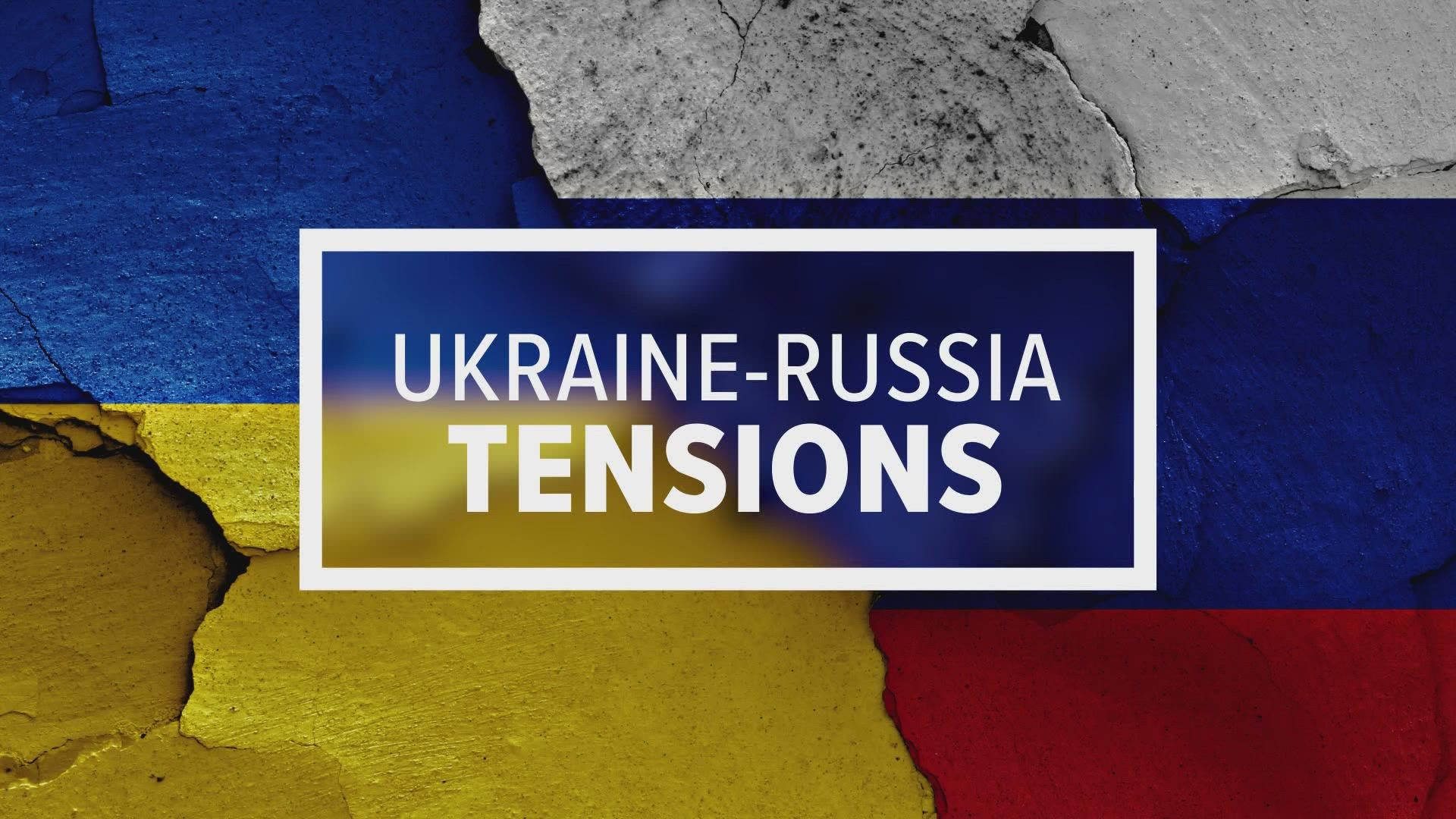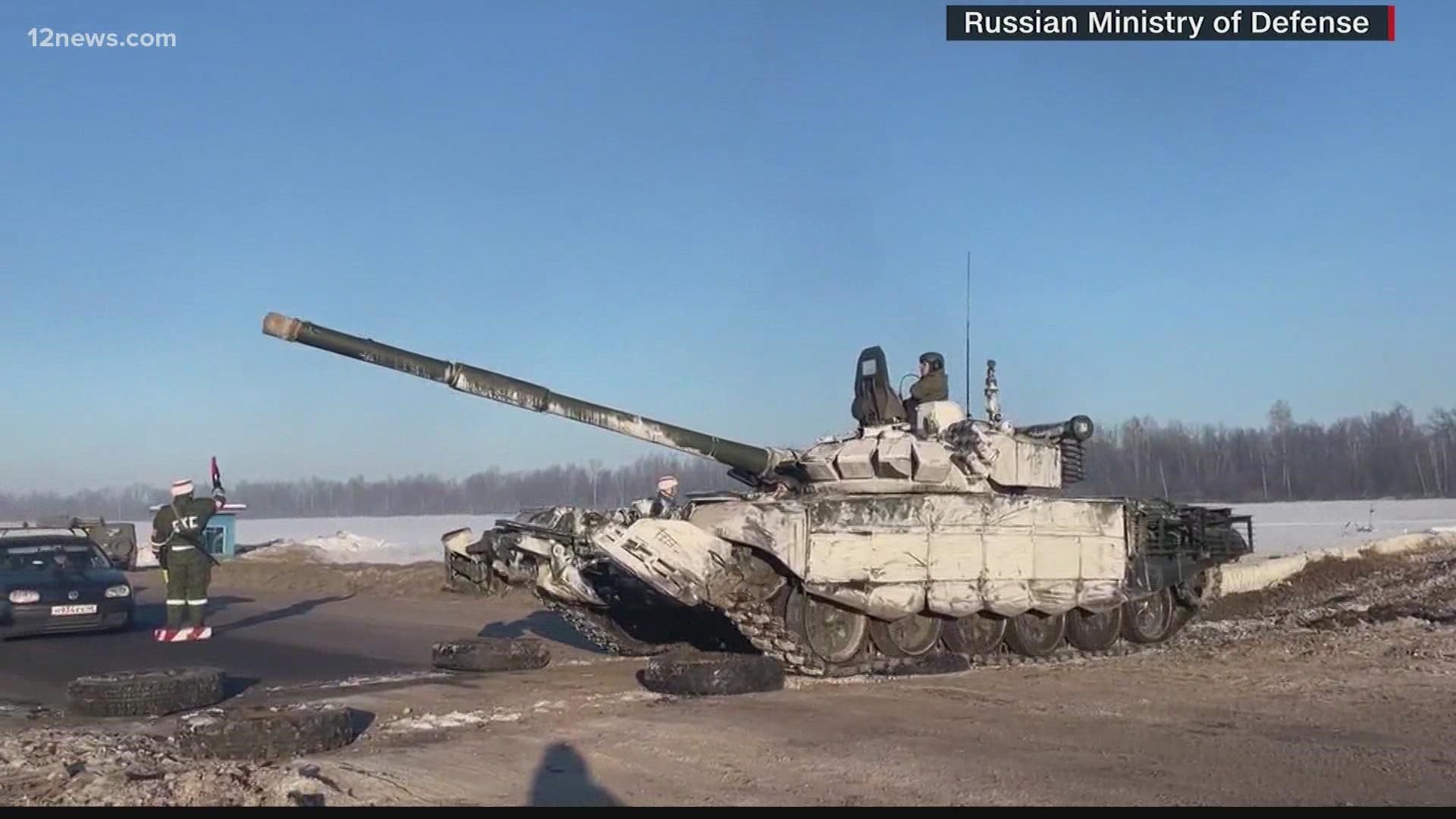SEATTLE — Ukrainians in Washington state are watching an escalating conflict between Russia and Ukraine, worried about their families and the future of their home country.
"Still under constant stress because we don't know when a full-blown invasion will start. We don't know what [Russian President Vladimir Putin] is planning to do," said Valeriy Goloborodko, the honorary consul of Ukraine in Seattle. "We believe that this is just the beginning."
Roughly 100,000 Ukrainians live in Washington. It's a community that's banding together as it anxiously waits to see what happens.
A long-feared Russian invasion of Ukraine appeared to be imminent Monday, if not already underway, with Putin ordering forces into separatist regions of eastern Ukraine. A vaguely worded decree signed by Putin did not say if troops were on the move, and it cast the order as an effort to “maintain peace.” But it appeared to dash the slim remaining hopes of averting a major conflict in Europe that could cause massive casualties, energy shortages on the continent, and economic chaos around the globe.
On Tuesday, the White House began referring to the Russian troop deployments in eastern Ukraine as an “invasion” after initially hesitating to use the term — a red line that President Joe Biden has said would result in the U.S. levying severe sanctions against Moscow.
Several European leaders said earlier in the day that Russian troops have moved into rebel-held areas in eastern Ukraine after Putin recognized their independence — but some indicated it was not yet the long-feared, full-fledged invasion.
The White House decided to begin referring to Russia’s actions as an “invasion” because of the situation on the ground, according to a U.S. official who spoke on the condition of anonymity to discuss internal deliberations.
The administration resisted initially calling the deployment of troops because the White House wanted to see what Russia was actually going to do. After assessing Russian troop movements, it became clear it was a new invasion, the official added.
"Everybody wants to do something. Everybody wants to help," said Lidia Mykytyn, the advocacy team lead for the Ukrainian Association of Washington State.
Mykytyn said the community has two ways of trying to help Ukrainians. The first is talking with U.S. lawmakers.
"We need sanctions now. We don't need to punish Russia. We need to prevent an invasion," Goloborodko said Monday.
White House press secretary Jen Psaki also alluded to the Russian action as being an invasion in a Twitter post commenting on Germany chancellor Olaf Scholz's decision to halt the Nord Stream 2 gas pipeline in response to Russia’s actions.
The U.S. president “made clear that if Russia invaded Ukraine, we would action would act with Germany to ensure Nord Stream 2 does not move forward,” Psaki said.
The second effort is finding funding and partnerships for humanitarian aid if the conflict escalates to violence.
"After today, it's like the worst-case scenario is happening, so we're moving into more of an execution phase," Mykytyn said Monday.


